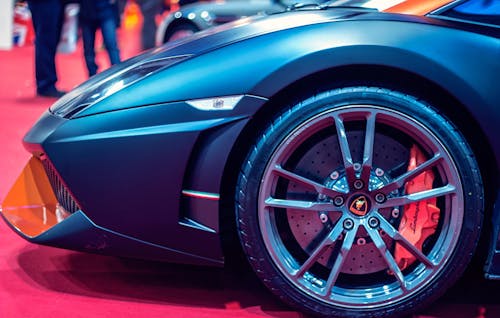The Allure of Sports Cars: Why They Captivate Enthusiasts
Sports cars have long been a symbol of speed, luxury, and engineering excellence. These high-performance vehicles captivate car enthusiasts and everyday drivers alike. In this article, we explore the characteristics that make sports cars so desirable, their impact on automotive culture, and what the future holds for these iconic machines.
The Characteristics of Sports Cars
When we think of sports cars, several defining characteristics come to mind. Sports cars are typically designed for high performance, featuring powerful engines, lightweight bodies, and agile handling. Their sleek aerodynamics contribute to not only their stunning visuals but also their remarkable speed capabilities. Many of these vehicles are built with advanced materials such as carbon fiber and aluminum, which enhance performance by reducing weight. Sports cars often boast a rear-wheel-drive layout, providing an exhilarating driving experience. Additionally, the integration of cutting-edge technology, such as adaptive suspensions and traction control systems, allows for smoother handling and greater control on various terrains. In essence, a sports car is an embodiment of automotive engineering, delivering an experience that is both thrilling and refined.
The Emotional Appeal of Sports Cars
The allure of sports cars extends beyond mere specifications; it strikes an emotional chord with enthusiasts. Driving a sports car elicits feelings of freedom and excitement that few other vehicles can match. The roar of the engine, the feel of the steering wheel, and the speed achieved on an open road contribute to an adrenaline rush that captivates many. This connection to emotion is why cars like the Ferrari and Porsche have become iconic. They represent aspirations of performance and luxury, inviting drivers to experience the thrill of the open road. Moreover, sports cars often serve as a status symbol, signifying success and affluence. This emotional engagement propels sports cars into a lifestyle choice rather than merely a mode of transportation.
Sports Cars and Culture
Sports cars have undeniably influenced automotive culture and society at large. They feature prominently in movies, video games, and social media, often depicted as thrilling companions in extravagant adventures. Iconic films have revolutionized the image of sports cars, portraying them as symbols of rebellion and freedom. Furthermore, automotive events and car shows dedicated to sports cars foster a vibrant community where enthusiasts can share their passion. From racing events to car meets, the culture around sports cars promotes camaraderie among aficionados and inspires the next generation of car enthusiasts. In this way, sports cars transcend their mechanical functions, becoming integral to the cultural fabric where performance and lifestyle intersect.
The Future of Sports Cars
Looking ahead, the future of sports cars presents both challenges and opportunities. As concerns about environmental sustainability grow, manufacturers are pivoting towards electric sports cars, marrying speed with eco-conscious technology. Electric vehicles offer instant torque delivery, enabling astonishing acceleration—a feature that aligns perfectly with the high-performance nature of sports cars. Companies like Tesla and Porsche are at the forefront, showcasing models that redefine what it means to drive a sports car. However, the traditional combustion engine is far from obsolete; many manufacturers are opting for hybrid models that retain the classic feel while innovatively reducing emissions. The future of sports cars, therefore, is a blend of homage to tradition and bold strides into sustainability.
Sports Cars vs. Other Vehicles
One might wonder, what sets sports cars apart from other vehicles? Unlike standard cars, sports cars focus primarily on performance, speed, and driver engagement. While family sedans are built for comfort and practicality, sports cars prioritize exhilaration and handling precision. They are often equipped with advanced braking systems, precise gear controls, and lightweight designs crafted for awe-inspiring responsiveness. Additionally, customization options for sports cars allow enthusiasts to individualize their vehicles to suit their specific performance preferences and aesthetic appeals, creating a deeper personal connection. Comparing sports cars to everyday vehicles highlights the unique characteristics that distinguish them, reinforcing their status as desirable, high-performance machines.
Conclusion: The Enduring Appeal of Sports Cars
In conclusion, sports cars will continue to be a quintessential part of automotive culture. Their unmatched performance, emotional engagement, and evolving technology ensure that they remain relevant in a rapidly changing automotive landscape. As manufacturers explore new innovations, the essence of what constitutes a sports car will adapt but never fade. The journey of sports cars is a testament to the passion and dedication of enthusiasts worldwide, showcasing an unyielding love for speed and engineering excellence. Whether through tradition or innovation, sports cars will always hold a special place in the hearts of car lovers.
